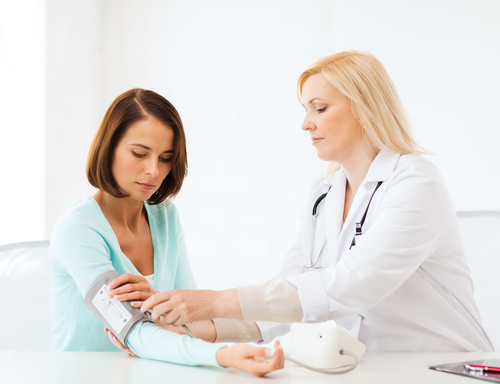DIAGNOSIS
Low blood pressure (hypotension) can be easily diagnosed by measuring your blood pressure. It’s best that you have your blood pressure taken by a trained doctor or nurse. You may need further tests, such as blood tests or an electrocardiogram (ECG), to determine the underlying cause.
Managing Low Blood Pressure
Low blood pressure (hypotension) usually only needs to be treated if it’s causing symptoms. This involves general lifestyle advice and treating any underlying cause of the condition. If you have naturally low blood pressure and it’s not causing any problems, treatment is rarely necessary.
The advice outlined below can often help limit symptoms of some of the most common types of hypotension.
Stand up gradually, particularly first thing in the morning. It may also be useful to try other physical movements first to increase your heart rate and the flow of blood around your body. For example, stretching in bed before you get up, or crossing and uncrossing your legs if you’re seated and about to stand.
Avoid standing for long periods of time. This can help prevent neutrally mediated hypotension (low blood pressure caused by miscommunication between the heart and brain).
Wear support stockings. Sometimes called compression stockings, these are tight-fitting elastic socks or tights. They provide extra pressure to your feet, legs and tummy, which can help improve circulation and increase blood pressure. However, you should speak to your GP before using support stockings as they’re not suitable for everyone.
Avoid caffeine at night, and limit your alcohol intake. This can help you to avoid becoming dehydrated, which can also cause low blood pressure.
Eat small, frequent meals rather than large ones. This can help prevent postprandial hypotension (low blood pressure after eating). Lying down after eating or sitting still for a while may also help.
Under your doctor’s guidance, increase your fluid and salt intake. Dehydration can cause low blood pressure. This can be easily treated by increasing your fluid and salt intake. Ensuring you drink enough fluid will help by increasing the volume of your blood, which increases your blood pressure.
If you have low blood pressure, you may benefit from having more salt in your diet. Your doctor can advise how much additional salt you need and whether you can add salt to your usual food or take salt tablets. Don’t add extra salt to your diet without seeing your doctor first.
Change your medication. If your doctor suspects your medication is causing low blood pressure, they may alter your dose or advise using an alternative medication.
Your blood pressure should be monitored while you’re taking medication and any changes should be noted. Tell your doctor if you’re experiencing side effects from taking medication.
Treat underlying conditions. If your doctor suspects your low blood pressure is caused by an underlying health condition, you may be referred to hospital for further tests and treatment.
For example, if your low blood pressure is related to hormone problems, you may be referred to a specialist called an endocrinologist who may prescribe hormone replacement medication.
RECOMMENDED MEDICATIONS
Very few people are prescribed medication for low blood pressure. The symptoms of hypotension can usually be treated by making the above changes to your lifestyle and, in particular, by increasing your fluid and salt intake.
If medication is necessary, it will usually be medicine to expand the volume of your blood or narrow your arteries. Your blood pressure will increase as there will be more blood flowing through a smaller space.


